When intuitive decision-making matters

A CLASSIC Harvard Business Review article by Eric Bonabeau entitled “Don’t Trust Your Gut” discusses how intuition plays an important role in decision-making but warns that it can be dangerously unreliable. He noted how research revealed that 45% of corporate executives rely more on instincts than on facts and figures in running their businesses. Detached from rigorous analysis, intuition is a fickle and undependable guide.
Intuition is the ability to have a grasp on a situation or information without the need for conscious reasoning. As Bonabeau describes it, “people have always sought to put their faith in mystical force when confronted with earthly confusion.” Intuition or gut instinct is also known as sixth sense and involves being able to gather information that other individuals may miss.
The allure of intuition lies in its transformative power and the stories of business legends guided by vision and their subconscious mind. It is romantic, even magical. It simplifies complex situations and raises to high stations those who claim to have the capacity for good hunches that pay off. Bruce Henderson, founder of the Boston Consulting Group, calls intuition “the subconscious integration of all the experiences, conditioning, and knowledge of the lifetime, including the culture and emotional biases of the lifetime.”
Finance today has a new school of thought dubbed behavioral finance where understanding the implications of psychological factors reveals some of the potential problems of intuitive decision-making. Errors in information processing can lead to misestimating the true probabilities of possible events and associated returns. The individual’s limited analytical processing capacity can lead to overreaction.
In the analysis of Bonabeau, the problems in information processing make reliance on intuition dangerous. We give disproportionate weight to (a) information confirming not challenging our assumptions; (b) conclusions justifying, not upending, the status quo; and (c) information we receive first, which distorts our interpretation of subsequent data.
Research has revealed our unconscious desire to identify patterns to understand and anticipate the future. The problem here is when a new phenomenon exists, brains try to categorize it based on our previous experience, to fit even when it doesn’t. You’ll likely miss what makes it different and lead to wrong action.
Pattern seeking can cut off or narrow an individual’s thinking too quickly. An intelligent decision-making process requires the explanation of options and alternatives. Intuition seeks immediate closure. Additionally, it masks me-too thinking. In today’s interconnected world, we live in a vast echo chamber where the voice of intuition could simply be the voice that communicates to everyone else. The tendency is to follow the crowd. Intuition could be misleading.
Given all the negatives, should we set aside intuition? Empirically, insights provide important illumination that cannot be ignored. Combine this with the context and circumstances of the situation and it can lead to better outcomes.
Bartleby of The Economist recently wrote that some decisions are more connected to emotional responses and inherently less tractable to analysis.
There are situations in the workplace where instinctive decision-making is the only way to get through the day.
There is danger in over-analysis and planning. Fast thinking, which relies on intuition, can help when overthinking things could lead to what Bartleby calls analytical overshadowing, mulling a simple problem until it turns into a complex one. Intuition becomes more unerring with experience.
Dr. Melanie Greenberg in Psychology Today suggests that the mind should integrate logical thinking with emotional awareness. The wise mind integrates our intuitive reactions with the wisdom of experience and knowledge about the world. Insight brings the courage to see what others don’t. It is key to the eureka moment.
There is no one best approach. Henry Mintzberg and Frances Westley acknowledge that the rationale or think-first model of decision-making needs supplementation. Think-best models assume rationality with one’s capacity to define, gather data, analyze, diagnose, design, and decide. To be effective, we should also embrace intuitive or action-oriented forms of decision-making. There are times when insights from deep knowledge where the subconscious mind prevails can lead to correct action. As Louis Pasteur puts it, “choice favors the prepared mind.”
When to use intuition and how to combine it with deliberative thinking is a skill worth exploring and developing. By being aware of its pitfalls, the different ways of knowing and deciding can be adopted, when needed.
The views expressed herein are his own and does not necessarily reflect the opinion of his office as well as FINEX.
Benel Dela Paz Lagua was previously EVP and chief development officer at the Development Bank of the Philippines. He is an active FINEX member and an advocate of risk-based lending for SMEs. Today, he is independent director in progressive banks and in some NGOs.




